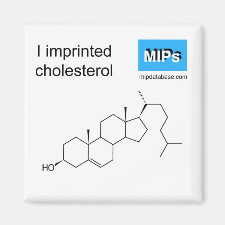
Authors: Hishiya T, Asanuma H, Komiyama M
Article Title: Molecularly imprinted cyclodextrin polymers as stationary phases of high performance liquid chromatography.
Publication date: 2003
Journal: Polymer Journal
Volume: 35
Issue: (5)
Page numbers: 440-445.
DOI: 10.1295/polymj.35.440
Abstract: Imprinted cyclodextrin polymers are prepared and applied to stationary phases of high performance liquid chromatography (HPLC) for the selective recognition of steroids and other hydrophobic guest molecules. Molecular-imprinting efficiently promotes the binding-affinity and substrate-selectivity towards the template molecules compared with the control polymers prepared in their absence. When rigid and hydrophobic molecules such as cholesterol are imprinted, retention times towards the template molecules are notably enhanced. Thus, imprinting of cyclodextrins is effective for the preparation of synthetic tailor-made receptors for various kinds of hydrophobic guest molecules, and the polymers are potentially applicable to selective recognition of biologically important molecules or removal of toxic molecules from aqueous media
Template and target information: cholesterol, progesterone, phenoxathiin, 1,2-ethylene bis(4-nitrobenzamine), 1,4-butylene bis(4-nitrobenzamine), trans-stilbene, m-terphenyl, p-terphenyl



Join the Society for Molecular Imprinting

New items RSS feed
Sign-up for e-mail updates:
Choose between receiving an occasional newsletter or more frequent e-mail alerts.
Click here to go to the sign-up page.
Is your name elemental or peptidic? Enter your name and find out by clicking either of the buttons below!
Other products you may like:
 MIPdatabase
MIPdatabase









